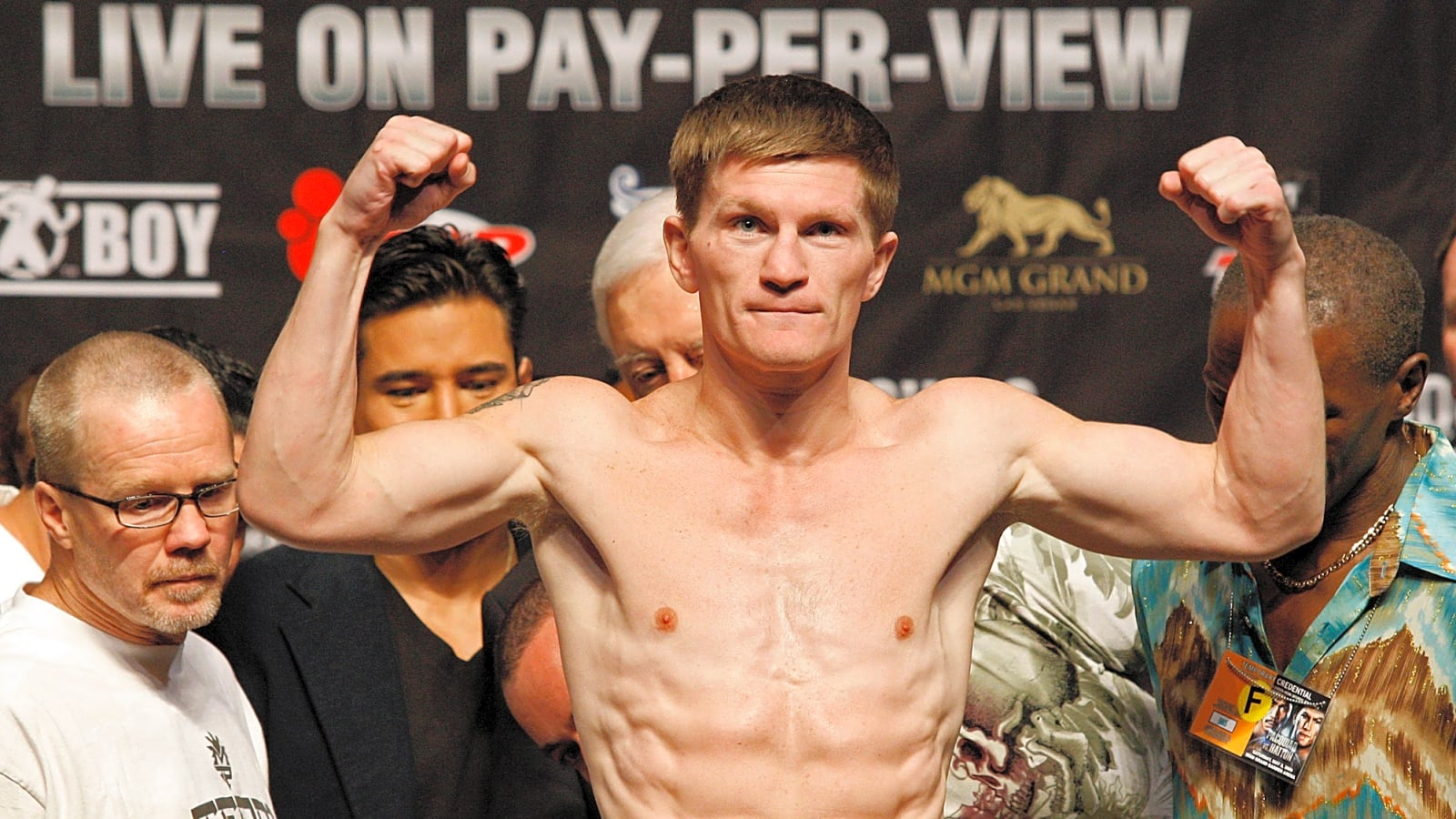
The boxing world got sucker-punched with devastating news that nobody saw coming. Ricky “The Hitman” Hatton, the scrappy Manchester fighter who once had crowds singing his name from Vegas to his hometown, was found dead in his Hyde home on September 14. He was just 46 years old.
The Heartbreaking Discovery That Stunned Boxing Fans
On what should have been an ordinary Sunday morning, Paul Speak, Hatton’s longtime manager and friend, arrived at the boxer’s house to escort him to Manchester Airport. They had plans – big ones. A comeback fight in Dubai was on the horizon, and Hatton’s bags were already packed for December. But when Speak couldn’t get a response at the door, he let himself in and found his friend unresponsive.
The coroner’s court in Stockport delivered the gut-wrenching details that no boxing fan wanted to hear. Senior Coroner Alison Mutch confirmed that the provisional cause of death was hanging, and the full inquest won’t take place until March 20, 2026.
When Everything Seemed Fine Just Days Before
Here is what makes this tragedy even more heartbreaking – Hatton had been with family just two days earlier on Friday, September 12. According to police coroner’s officer Alison Catlow, he appeared “well,” and there was absolutely nothing that raised red flags. His family later insisted he was “in a good place,” being the doting father and grandfather they all knew and loved. But sometimes the demons we can’t see are the ones that fight the hardest.
The People’s Champion Who Never Forgot His Roots
If you never witnessed Hatton in his prime, you missed something special. This wasn’t some manufactured hype machine – this was the real deal. The Manchester crowds would belt out “There’s Only One Ricky Hatton” until the arena walls shook. His all-action style and that genuine, humble personality made him beloved on both sides of the Atlantic.
Hatton earned his “People’s Champion” nickname the hard way. He’d throw leather with reckless abandon, take punishment that would drop lesser men, and somehow find a way to make you believe he was just like you – except he happened to be incredibly gifted at hitting people really hard.
A Fighter’s Battle Outside the Ring
What made Hatton’s story so compelling was his honesty about his struggles. The guy didn’t hide behind PR spin when discussing his battles with depression and substance abuse. He once admitted he was “coming off the rails” with his drinking and drug use, describing himself as being “like a runaway train.” That kind of raw honesty? That is rare in professional sports, where image is everything and admitting weakness can cost you millions.
Manchester Says Goodbye To Their Hero
Last week, thousands packed the streets around Manchester Cathedral for Hatton’s memorial service. Liam Gallagher showed up. Wayne and Coleen Rooney were there. The Fury brothers, Tyson and Tommy, paid their respects. When Manchester City’s biggest supporters and Oasis royalty turn out, you know you’ve touched people’s lives.
The outpouring of grief stretched far beyond boxing circles. This was a community mourning one of their own – a kid from Greater Manchester who made it big but never forgot where he came from.
The Painful Reality Behind the Gloves
Hatton’s death forces uncomfortable conversations about mental health in boxing. The sport that celebrates toughness and “warrior mentality” often struggles with creating space for vulnerability. How many fighters suffer in silence because admitting pain feels like admitting weakness?
The tragedy is that Hatton seemed to be moving forward. Plans were in motion. Hope was there. But depression doesn’t follow logic, and it certainly doesn’t respect comeback stories or packed schedules. The full inquest might provide more answers, but some questions will linger forever. What we know for certain is that Manchester lost a genuine hero, boxing lost a beloved champion, and a family lost someone they cherished deeply.
More must-reads:
- Vikings' quarterback gamble is looking like a major flop
- Damian Lillard lashes out at NBA star for mocking gambling arrests
- The 'World Series home run leaders' quiz
Breaking News
Trending News
Customize Your Newsletter
 +
+
Get the latest news and rumors, customized to your favorite sports and teams. Emailed daily. Always free!








